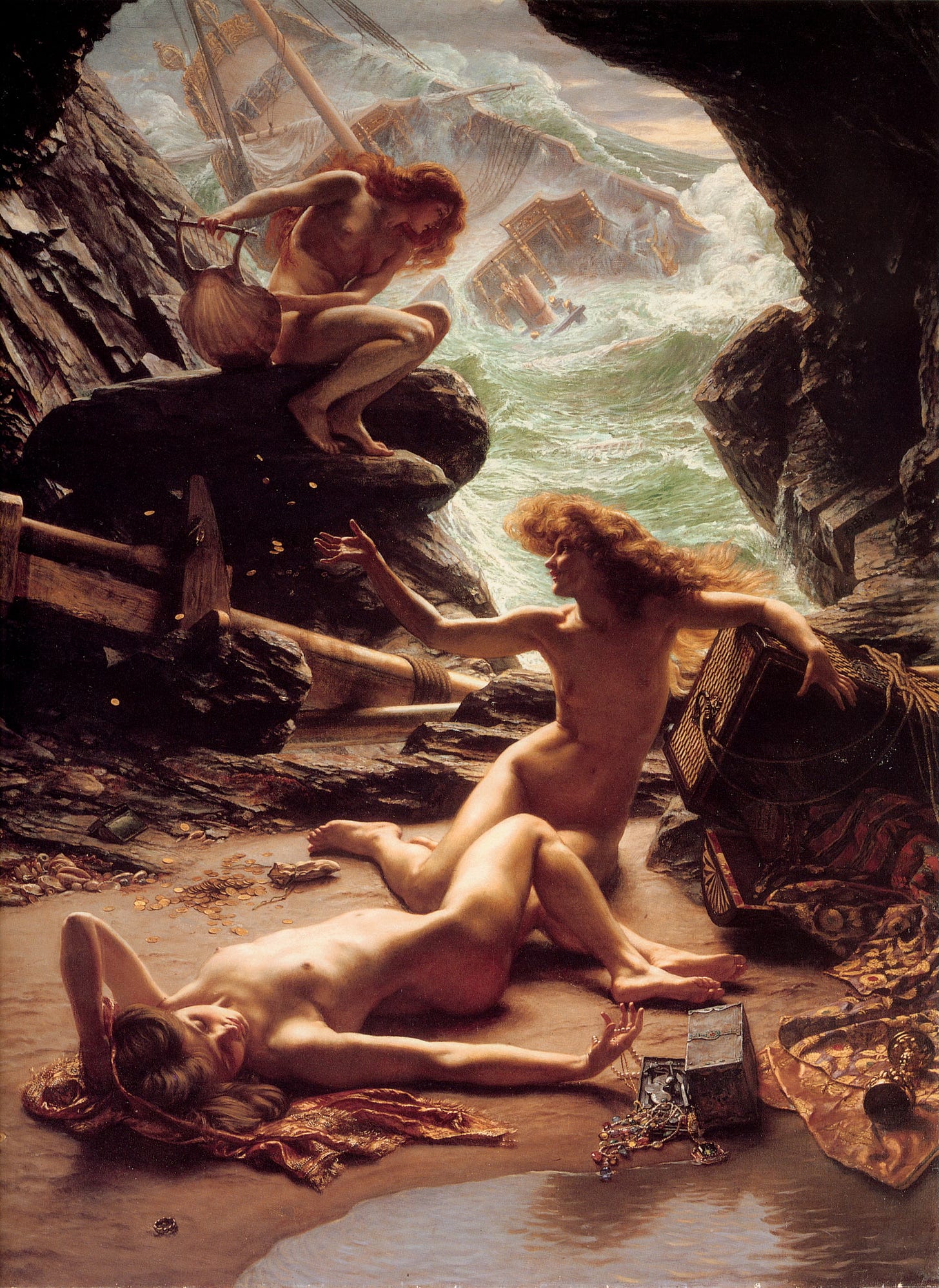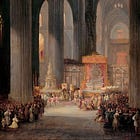The War Between Expectations and Reality
Epictetus, Colonel Henry, and invincibility
Suffering while alive is a minor nuisance compared to the absence of suffering while dead. This leads me to believe suffering well is an art form, a Way, and that Epictetus offers us such a path when he says: “Who, then, is the invincible man? He who is dismayed by nothing outside the power of his choice.”1
What does such a soul look like, those souls undismayed by matters outside of their choice?
My hunch is these questions lead us to a radically different perspective on our culture at present.
It is worth noting there was never one Stoicism: Rufus, Epictetus, Seneca, Aurelius, the list goes on, each student of this ancient school making their own version. Each added a bit of himself to it, reflecting their life experiences: Aristocrat, Slave, Statesman, Emperor.
Of these four, I share the greatest blood-bond with Epictetus. But he knew slavery and I knew war, so instead of drawing lessons from mentors like Hercules and Socrates, I draw them from less well-known examples: warriors whose deeds may never be known.
One such unsung soldier is Guy Henry.
In a firefight against Crazy Horse and the Sioux, “Colonel Guy Henry took a bullet in the head which pierced both cheek bones, smashed his nose, and destroyed one eye.”2 A bullet to the skull is unfortunate; handling it well is legendary. Henry stayed upright in his saddle with coppery-tasting blood pouring out of his mouth, massed his men, charged the enemy, and then blacked out and fell off his horse. When the fighting slowed enough for his men to behold his red and ruined face, they were struck when he said the following: “It’s all right. It’s what we’re here for.”
It is what we are here for.
What, then, is it? We are not here merely for victory, or metals, or glory, or wealth, or fame. We are here for a bullet through both cheekbones. We are here for lying on the ground and looking up at the Shoshone chief Washakie as he stands above our blood-soaked body, alone against the blood-drunk Sioux, the only thing standing between our survival and getting shot—again—and scalped. We are here for getting kicked in the face by the donkey carrying our litter on the two-hundred mile journey to a fort. We are here for temporarily going blind on the jarring ride, our veins left with little more than a pint of blood to pump, yes, and then accepting the risk of drowning to get to the fort a little faster held in the arms of a brother as he stumbles through the white-watered current without slipping and killing us. It also means making it to safety, at last, on a day that happens to be the 4th of July, only for the drunken men screaming and firing their pistols in an ecstasy that would make Bacchus blush accidentally shooting a hole through our tent wall.
It is every single thing that can happen within our power of choice or outside of it. It is what we are here for. It is what Epictetus is ungently telling us we should not be dismayed by.
And after this crucible, Henry’s men had one word to describe his demeanor: cheerful.
What then?
My hunch is he knew he was not placed on this good green earth and given a bit of breath and blood and brains for reality to meet his expectations, but for his expectations to meet reality. He lived within the power of his choice. This is why he turned a river into acceptance, a broken skull into courage, and a donkey hoof to the face into cheerfulness as opposed to misery which would have spread through the ranks like the Black Death. This is why he could turn a Sioux warrior with an unpleasantly large blade and a lustful light in his eyes as he stared at that oh-so-savory scalp into profound gratitude for Washakie.
As in war, so in life.
Expecting reality to meet expectations is as logical as 2+2=73. We cannot build a skyscraper with this logic any more than we can find the profit in rosy-fingered dawns and bullet-battered skulls all the same. Invincibility is to think on the worst case scenario and accept it with heart, mind, and soul. Not so much because it means we will never suffer, but because we will never be dismayed by our suffering.
It becomes clear that it is not the absence of suffering but how beautifully we suffer that matters.
And yet we see an anti-Colonel Henry creed becoming the dominant doctrine at present. How is this? What is its root? There is the sense that anything less than expecting reality to meet expectations is to meekly accept lower standards. To dream small. To miss out. This same concern wailed within the walls of my own skull for decades. As a result, I inflicted more misery upon myself than any sane man should by expecting people and events to turn out precisely as I envisioned them to turn out, only for the irony to smite me down in my folly when reality did as it damn well pleased and I learned the truth—I was the problem all along.
The lesson we may draw is this: aligning our expectations to reality need not be passive. Far from it. The Epictetus-invincibility reminds us we can sleep on a pallet in voluntary poverty with no more than an earthenware lamp if this strikes us as an agreeable way to live. The Colonel Henry-invincibility reminds us we can lean in, wage war, and maybe build a skyscraper or colonize Mars.
It is strange but true that excellence and achievement may only be earned by first lowering our standards.
It is even more strange that lowering our standards may lead to invincibility.
If you enjoyed this, please consider adding a like, restacking, and sharing this essay. This is how more readers find my work.
1.18.21
Connell, Evan S. Son of the Morning Star. North Point Press, 1997. I had never read a book like this before. It was as if he was merely writing about all the books he was researching, honing in on the bits of history around the Battle of Little Big Horn that others leave out, and the ironic/humorous tone was such that I pictured him cracking himself up in his chair the entire time he was writing it.






"It becomes clear that it is not the absence of suffering but how beautifully we suffer that matters."
This beautiful line says it all for me.
Thinking of a movie clip screened in a sweltering hot classroom at Camp Upshur Quantico Virginia, OCS summer of 1975. The clip? A Marine evac brutally wounded in the surgical tent on the table the Doctor’s working to save his life. They did but he lost an eye, two legs above the knee and an arm. The senior enlisted instructor himself a two time Vietnam warrior said something that sticks to this day. “He’s alive! I can assure you candidates he was very glad they did everything to get him off the battlefield and into surgery and to go on to live.” He went on to tell us that IF the Corps allowed us to be commissioned that we had a moral duty to save our Marines…it weighs heavy these days Sam, I feel like I (we) are failing you warriors of the GWOT, we need to do more. I am suffering. I am not dismayed. To suffer to save your men is a glorious suffering. I’ll take it. It took this post to figure out why my brain works the it does! Carry on Sam! We few we happy few…